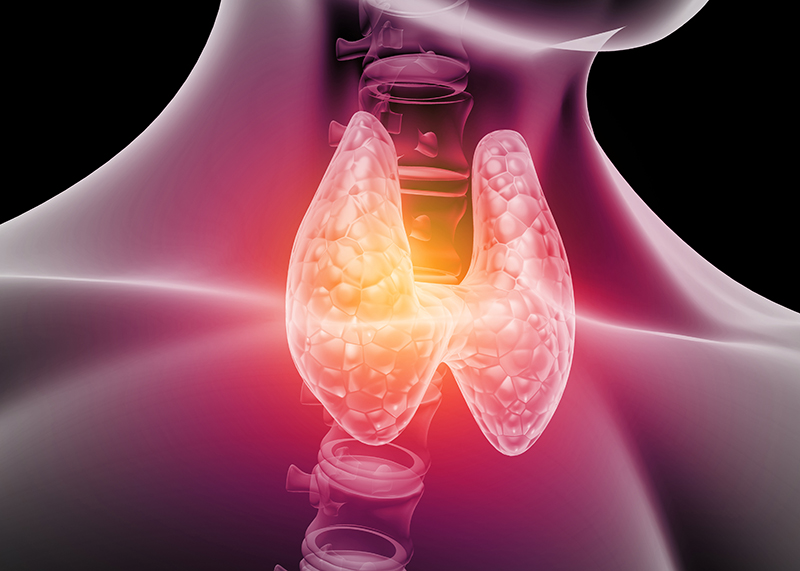Hypothyroidism is the term that defines an underactive thyroid gland. In other words, the thyroid gland is incapable of producing enough thyroid hormone for normal bodily function, among them helping the body use energy, keep warm, and maintain an adequate brain, heart, and muscle function, as well as that of other organs. Shaped like a butterfly, the thyroid is located in the lower front of the neck, just under the throat.
Common Hypothyroidism Causes
Affecting the endocrine system which regulates hormonal use, production, and balance in our bodies, the most common causes for this diminished malfunction of the gland include:
- Autoimmune Disease, with Hashimoto’s and atrophic thyroiditis most prevalent among them.
- Radiation Treatment – Patients that may lose partial or total thyroid function include those treated with radioactive iodine —Graves’ disease, nodular goiter, and thyroid cancer— or with radiation—Hodgkin’s disease, lymphoma, or a number of other cancers.
- Surgical Removal – Patients with thyroid nodules, thyroid cancer and Graves’ disease may need partial or total removal.
- Congenital Hypothyroidism, meaning a baby born with it already.
- Thyroiditis, which is an inflammation of the thyroid due to an autoimmune attack or a viral infection.
- Iodine Shortage or Surplus – Since the thyroid needs iodine to run smoothly, too much or too little of it may affect its function.
- Damaged Pituitary Gland – The pituitary is considered the master gland. It informs the thyroid of how much hormone to produce. If damaged by, say, a tumor, radiation or surgery, the master may not be able to give proper instructions.
- Medicine – Certain drugs, such as amiodarone, lithium, interferon alpha or interleukin-2 may limit hormonal production.
Risk Factors
Increased risk of hypothyroidism affects these groups.
- Women
- Pregnant or mother in the last six months
- Older than 60
- Family history of thyroid disease
- Autoimmune disease, i.e., type-1 diabetes or celiacs (gluten allergy)
… plus a combination of the different situations in the causes explained above.
Symptoms
Hypothyroidism symptoms are variable and often start out slowly to develop over a number of years. Although the two most commonly associated symptoms are fatigue and weight gain, there comes a point when thyroid hormone levels become too low and a person’s metabolism and body’s processes in general start slowing down visibly.
Here are some of the most outstanding symptoms.
- Fatigue
- Weight gain
- Puffy face
- Dry skin
- Thinning hair
- Hoarseness
- Increased sensitivity to cold
- Muscle aches, tenderness and stiffness
- Pain, stiffness or swelling of the joints
- Muscle weakness
- Constipation
- Heavier or irregular menstrual periods
- High blood cholesterol
- Slowed heart rate
- Depression
- Impaired memory
- Enlarged thyroid gland (goiter)
An underactive thyroid gland can be detected as easily as performing a blood test or a T4 test as required by your physician, of course after the usual look at symptoms, family history and a thyroid-specific physical exam. But the most sensitive exam to hypothyroidism is known as the TSH or Thyroid-Stimulating Hormone Test which measures thyroxine (T4) levels in your blood.
Sources:
https://www.mayoclinic.org/diseases-conditions/hypothyroidism/symptoms-causes/syc-20350284
https://www.thyroid.org/hypothyroidism/


